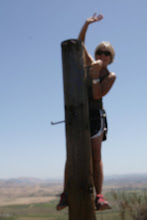Lucerne, Switzerland
...
after
quite
a
long journey
from
SLO
to
SFO
on to
on to
London
and then
to
to
Zurich
we
finally
arrived
by train
by train
to
the
first
stop
of
our
Autumn in Europe
Adventure
...
Adventure
...
Lucerne
sits
like
a
brilliant
jewel
like
a
brilliant
jewel
on
Lake Lucerne
Lake Lucerne
in
the
shadows
shadows
of the
majestic
majestic
Swiss Alps
It is in
the
German speaking
region
of
Switzerland
but
everyone
speaks
English French Italian
as well
as
German
German
(how progressive, no?)
from
the train station
we
walked
to our hotel
Hotel zum Rebstock
which
we
found
located
directly in front
of
from
the train station
we
walked
to our hotel
Hotel zum Rebstock
which
we
found
located
directly in front
of
the
Church of St. Leodegar
(Hotel zum Rebstock is just beside the Swiss flag to the left)

we came
to learn
that
this
church
(who's bells charmingly chimed throughout the night)
was
built in
the year
735
and
was
named after
the
Patron Saint of Lucerne
thoroughly and totally
jet-lagged
we
wandered
around
the glistening lake
inhaling
the clean air
the flowers
and
the
history
of Lucerne
inhaling
the clean air
the flowers
and
the
history
of Lucerne

we found
the
Kapellbrucke
the
iconic bridge
originally
built in 1333
(and
turns out
is
the
oldest
covered Bridge
in Europe)
the

the tower
(according to Wikipedia)
predated the
bridge
by
30
years
(so..like 1303?)

"Lucerne is unique in the fact that its three wooden pedestrian bridges, the 14th century Hofbrücke (now destroyed) and Kapellbrücke and the 16th century Spreuerbrücke, all featured painted interior triangular frames. This feature is not replicated in any of Europe's other wooden footbridges.[7] The paintings, dating back to the 17th century by local Catholic painter Hans Heinrich Wägmann, depict events from Lucerne's history. Out of the original 158 paintings, a total of 147 existed before the 1993 fire.[7] After the fire, the remains of 47 paintings were collected, although only 30 were ultimately fully restored.[7]
The wooden boards upon which the paintings were painted on were from 150 centimetres (59 in) to 181 centimetres (71 in) wide and 85 centimetres (33 in) to 95 centimetres (37 in) wide. Most of the panels were made from spruce wood boards, while only a few were made from linden wood and maple. The paintings were created during the time of the Counter-Reformation, featuring scenes promoting the Catholic Church. The paintings themselves were sponsored by the city's council members, who upon sponsoring a panel, were allowed to attribute their personal coat of arms on it. An explanation of each painting was printed below each scene. The paintings ran all along the bridge, dating from the life and death of Lucerne's patron saint St. Leger to the legends of the city's other patron saint St. Mauricio."
paintings
were
mesmerizing
drawing
you
into
dark
religious
history
of
Lucerne
in the evening
we found
a
wine bar
and
enjoyed
a
Spanish Tempranillo
and
plates
of
rich cheeses
plates
of
rich cheeses
salty charcuterie
fruit
nuts
and bread
(all of our no-no's)
fruit
nuts
and bread
(all of our no-no's)
a
glorious
beginning!
......and on to Strasbourg, France












